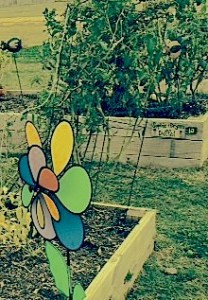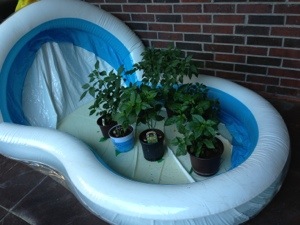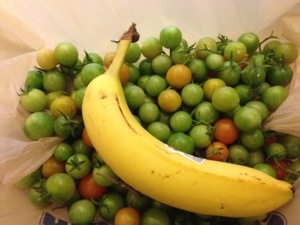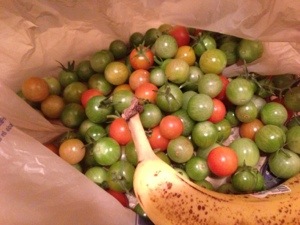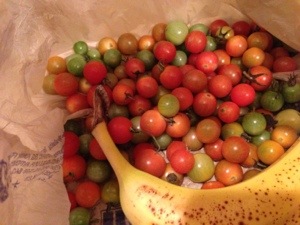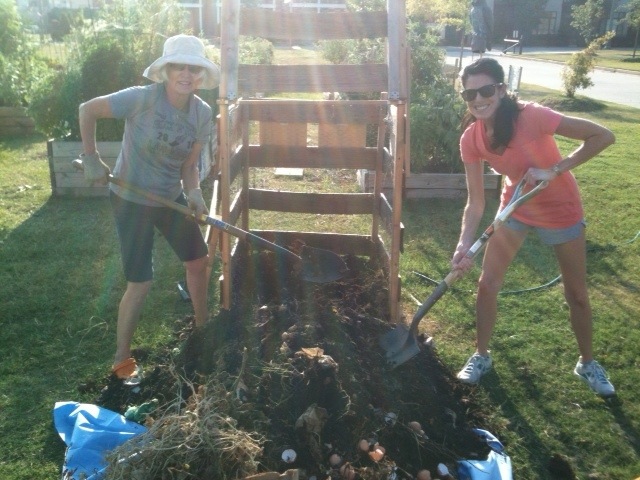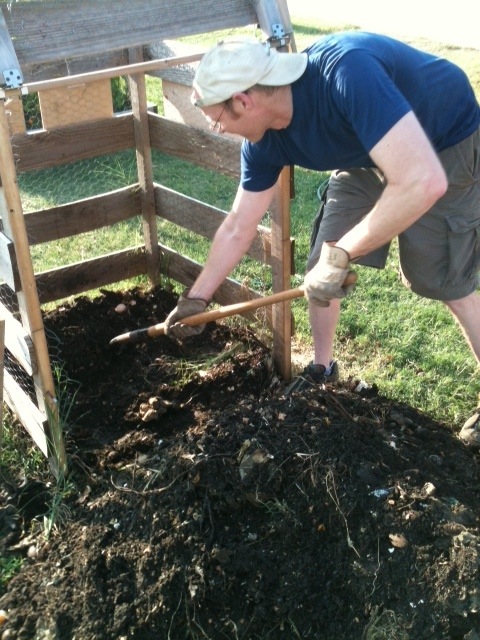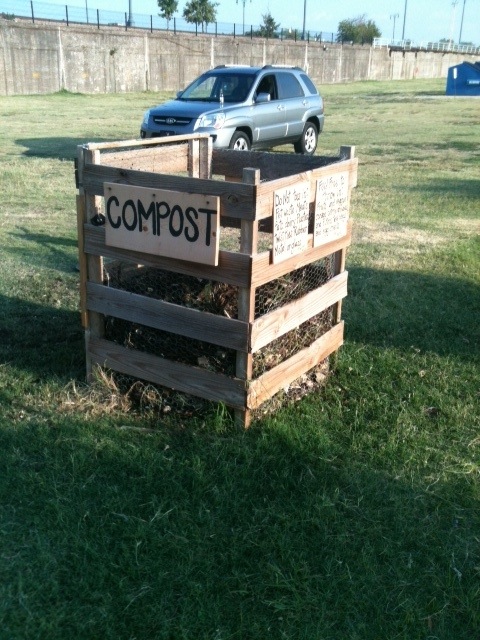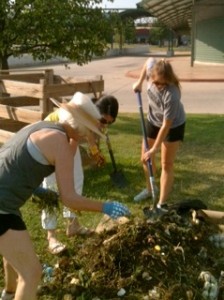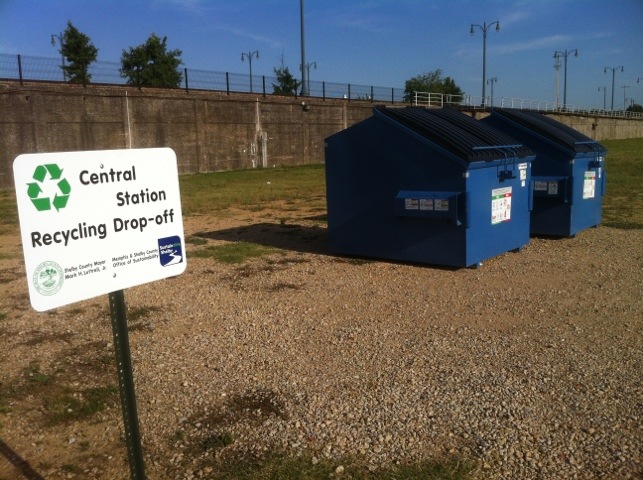Many thanks to Chris Cooper of the UT Shelby County Extension Service for coming out and helping with our gardens, advising us on things we can do to help with some of the problems we’ve seen, etc.
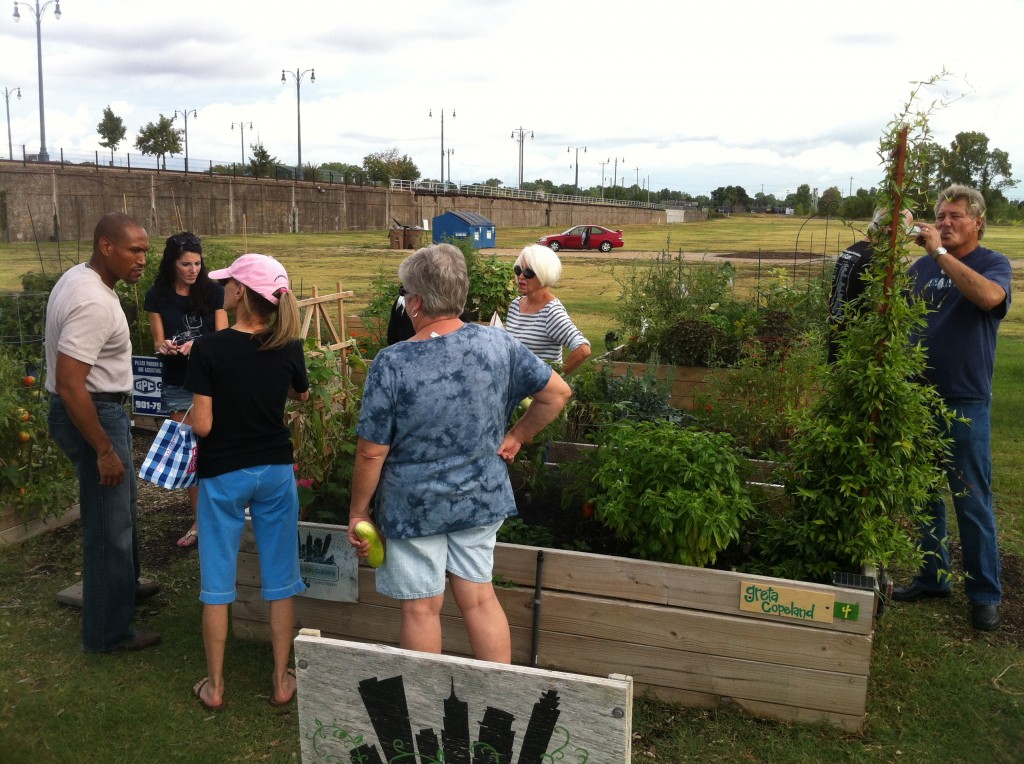
Chris Cooper (left) of the UT Shelby County Extension Service speaks to the gardeners
Thanks also to Greta for arranging this and taking such good notes which I’ve added below:
It would be a good idea to get a moisture meter (from the garden stores) to measure the moisture in our beds. This will help to prevent root rot.
Root Rot – yellowing of the stems and leaves near the bottom of the plant. After it yellows and dies, it spreads further down the stem.
Tomato Blight – Many of us have early blight caused from it blowing onto our plants or from rain. If you have blight, you should trim off all the infected leaves (yellowing or dead leaves, or leaves that have black spots on them). Also remove the stems if there are black spots on the stem. If the infected leaves fall off the plant and lay on the ground, they still have blight spores on them. Water can hit the spores and splash it back onto the plants, so it is important to just remove all the infected leaves from your bed. You can also minimize splash back by putting an organic mulch around your tomato plants…Chris suggested hardwood mulch (not redwood) or compost. Can control the blight by spraying your plants with a copper fungicide (copper sulfate). This is organic and won’t have the fruits. Can get the spray at the garden store. Chris also mentioned that are blight resistant tomato varieties out there. Just something to think about for next year.
Split Tomatoes – Caused by differences of water. When your bed is dry and then a lot of water is added at one time, it causes the fruit to grow too fast for the skin, so the skin splits. There are still fine to eat.
Tomato Leaf curl – caused from environmental stress (extreme hot and then cold temps or going from real wet to dry). Won’t damage the fruits on the plants, and there isn’t a way to prevent it.
Mildew on squash/zucchini leaves – caused from wet foliage overnight. Unless it’s really, really hot outside, you shouldn’t water at night, b/c your plants don’t have time to dry off and can mildew. Overcrowding and poor air circulation can also cause this and other fungal diseases. Cut all the mildewed leave off.
Wilting squash leaves – caused by vine borers. Can control this by using BT (Bacillus thuringiensis).
Little holes in cucumber or melon leaves – Caused from the spotted cucumber beetle—they look like a green ladybug! Eat the leave and take away the nutrients of the leaves. There isn’t a good organic way to prevent this, but you can try flowers (marigolds or other similar) that attract the good bugs that will hopefully eat the beetles. If the beetle is carrying a bacteria on it, it can cause bacterial wilt (my cucumbers have this). Trim off all the wilted parts.
Holes on Cabbage, brussel sprout or Broccoli leaves – look for yellow or green worms on the underside of the leaves. Can use an organic pesticide (Bacillus thuringiensis, or BT) to get rid of these worms.
Tiny holes in the bean leaves – caused by the flea beetle. Can you BT to get rid of these.
Herbs – can be cut back if they are getting too big…they will grow back fine.
Fall planting – Can grow from seed in July/Aug. Just make sure they get enough water. Chris suggested that you plant the seedlings that you get from the store when the overnight temperatures are consistently around 65 degrees.
Chris Cooper’s gardening show – On WKNO, Mondays at 6:30 PM and replayed on Saturdays at 1:00. WKNO.org. The show is called: The Family Plot: Gardening in the Mid-South. Can also watch past episodes online – http://video.wkno.org/video/2254806465/

